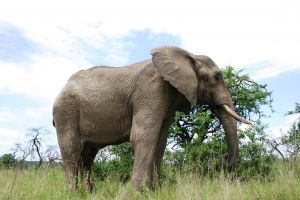If you love animals and want to know all you can about them, then a career in zoology is for you.
Have you ever watched your pet dog or cat and wondered why they do what they do? Is the zoo or the animal shelter your favorite place to visit? Do you try to convince your parents to let you keep every stray animal you find? Is your favorite channel Animal Planet? Then maybe you should check out a career as a zoologist. A zoologist works with all kinds of animals, from birds and fish to elephants and apes and even bugs. They work in zoos, in the wild, in environmental and animal protection organizations and universities studying animals and what makes them tick.
As a zoologist, you will spend about half of your time in the “field” studying animals, aka the zoo or the wilderness and the other half in a lab recording and analyzing the data you have collected about the animal.
Zoologists learn and record things about the animal’s environment, eating and sleeping habits and of course their behavior. This includes capturing and marking the animals they want to study so they can estimate the population of the animal, its age, sex and body measurement. This is important because it tells the zoologist the structure and health of that particular animal’s population and it’s survival rate in the wild or in captivity (the zoo). All of this information is collected and taken back to the lab to be studied more intensely and then a report is written based on their findings.
Becoming a Zoologist requires a lot of math and science classes, namely biology. If the thought of dissecting frogs grosses you out then this is not the job for you. You will also need a 4-year-college degree in a science like biology, psychology, anthropology, or zoology and most likely a master’s degree as well. The more educated you are, i.e. the more degree’s you have, the more money you will make. In addition, having more degrees allows you decide which kind of animals you want to study. For instance, you could move to Central America and study the jaguar or to India and study the Bengal tiger. Or, you could study animals that are on the endangered species list and figure out ways to help bring their populations back up.
More than liking math and science, you will also need to be a critical thinker and like to solve mysteries. Being a Zoologist can be a lot like being a detective. You will get a series of clues, which you will have to sort out in order to figure facts about that animal.A zoologist also spends time working with other animal scientists, like biologists, psychologists, and veterinarians, to share ideas. All of this helps the zoologist do what they like the most-helping animals.
Famous Zoologists
Jack Hanna, longtime TV host of his own show called Jack Hanna’s Anima Adventure’s, which has been on the air since 1997. He has appeared on both David Letterman and Larry King Live!
Jane Goodall is a British zoologist. She has been a zoologist for more than 35 years and is most famous for her work with Chimpanzees.
Dian Fossey (1932-1985) was famous for her work with gorillas in the mountain forests of Rwanda. She was murdered in 1985. Portions of Fossey’s life story were made into a movie called Gorillas in the Mist: The Story of Dian Fossey starring Sigourney Weaver as Fossey.
Salary of a Zoologist
1-5 years – $40,000 annually
5-9 years -$47,000 annually
10-19 years – $55,500 annually
20 years or more – $56,500
Source: http://www.payscale.com/research/US/Job=Zoologist_or_Wildlife_Biologist/Salary
Some of the jobs a zoologist does
Plan zoo education programs for schools.
Handle the care and placement of zoo animals, working with zoo curators and zoo directors to determine the best way to contain animals, maintain their habitats and manage facilities.
Perform administrative duties such as: fundraising, public relations, budgeting and supervision of zoo staff.
Find animals for zoo exhibition and locate mates for them.
Study the personalities of animals to identify and classify them.
Collect and dissect animal specimens and examine specimens under microscope.
Organize and conduct experimental studies with live animals in controlled or natural surroundings.
Study animals in their natural habitats, determining the effects of environment and industry on animals, interpreting findings and recommending alternative operating conditions for industry.
Study characteristics of animals such as origin, relationships, classification, life histories and diseases, development and genetics.
Publish information by writing reports and scientific papers or journal articles.
Making presentations and giving talks for schools, clubs, interest groups and park interpretive programs.
Raise specimens for study and observation or for use in experiments.
Coordinate preventive programs to control the outbreak of wildlife diseases.
Zoology and Animal Websites:
http://www.aza.org/
http://www.fws.gov/endangered/index.html
http://www.iucnredlist.org/
http://www.a25.com/animals.htmlhttp://www.ecojobs.com/
http://www.nature.com/naturejobs/
http://www.seaworld.org/careers/careerinfo.html
http://www.jobsabroad.com/listings.cfm?fkinterntype=103
http://www.sfzoo.org/about/keeper.htm
http://www.student-manual.com/study/subjects/zoolog/zoocareers.htm



